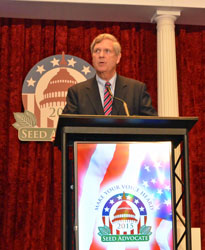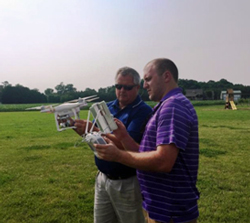 Agriculture Secretary Tom Vilsack stressed the importance of the seed industry to American agriculture and the nation as a whole during an address kicking off the American Seed Trade Association (ASTA) annual meeting on Thursday in Washington DC.
Agriculture Secretary Tom Vilsack stressed the importance of the seed industry to American agriculture and the nation as a whole during an address kicking off the American Seed Trade Association (ASTA) annual meeting on Thursday in Washington DC.
“Clearly the seed industry has been responsible for an extraordinary increase in productivity in American agriculture,” said Vilsack. “But more than that, you are also critically important to the expansion of the local and regional food systems we are creating in this country.” In addition, Vilsack continued, the seed industry is vital to conservation and the increase in biobased products.
Vilsack made a request to ASTA members that they contact their members of Congress and tell them about the importance of funding for agricultural research. “The sad reality is that the current Congress is looking at a budget for USDA that’s $3.3 billion less than it was when I first became secretary,” said Vilsack. “And a good portion of that reduction has come from research.”
Listen to Vilsack’s speech here: [wpaudio url=”http://www.zimmcomm.biz/asta/asta-annual-15-vilsack.mp3″ text=”Secy Vilsack addresses 2015 ASTA Annual”]








